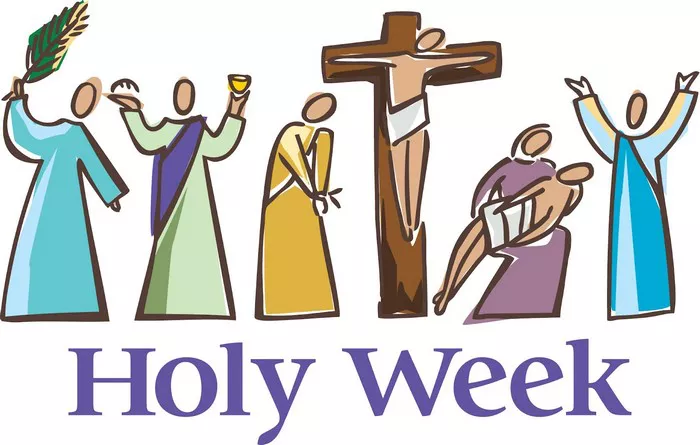In the hustle and bustle of modern life, finding time for spiritual reflection and family bonding can be challenging. However, Holy Week presents a unique opportunity for families to come together, reflect on the significance of the season, and deepen their faith. Family devotions during Holy Week can be a meaningful way to instill values, create lasting memories, and strengthen familial bonds. In this guide, we will explore the importance of family devotions during Holy Week and provide practical tips for creating a meaningful and engaging experience.
Understanding Holy Week: A Time of Reflection and Renewal
Holy Week, the week leading up to Easter Sunday, holds great significance in the Christian faith. It commemorates the final week of Jesus Christ’s life, including his triumphal entry into Jerusalem, the Last Supper with his disciples, his crucifixion, and ultimately, his resurrection. For Christians around the world, Holy Week is a time of solemn reflection, repentance, and spiritual renewal.
The Importance of Family Devotions
In today’s fast-paced world, families often find themselves pulled in multiple directions, with little time to connect and engage in meaningful activities together. Family devotions during Holy Week offer a precious opportunity to slow down, come together as a family, and focus on what truly matters. These devotional times can provide a sense of grounding and stability amidst the chaos of daily life, as well as an opportunity to pass down faith traditions from one generation to the next.
Creating a Meaningful Holy Week Devotional Experience
Set Aside Dedicated Time: Schedule specific times each day during Holy Week for family devotions. This could be in the morning before everyone starts their day, in the evening after dinner, or any other time that works best for your family’s schedule. Consistency is key to forming a habit, so try to stick to the same time each day.
Choose Relevant Scripture Passages: Select Scripture readings that correspond to the events of Holy Week, such as Jesus’ entry into Jerusalem (Matthew 21:1-11), the Last Supper (Luke 22:7-23), Jesus’ crucifixion (Matthew 27:32-56), and his resurrection (Matthew 28:1-10). Reading these passages aloud as a family can help to immerse everyone in the story and its significance.
Incorporate Prayer and Reflection: Take time during your family devotions to pray together and reflect on the meaning of the Scripture passages you’ve read. Encourage family members to share their thoughts, feelings, and questions about the events of Holy Week. You can also use this time to pray for each other, for your community, and for the world.
Engage the Senses: Create a multisensory experience by incorporating elements such as music, art, and symbolic objects into your family devotions. Play hymns or worship songs that reflect the themes of Holy Week, display artwork depicting scenes from Jesus’ life, and use symbols like crosses or candles as focal points for reflection.
Serve Together: Holy Week is not only a time for personal reflection but also a time to consider how we can serve others in the spirit of Jesus’ example. Look for opportunities as a family to engage in acts of service, such as volunteering at a local shelter, preparing meals for those in need, or writing letters of encouragement to isolated individuals.
Celebrate Easter Together: As Holy Week draws to a close and Easter Sunday approaches, make plans to celebrate the resurrection of Jesus as a family. Attend a church service together, participate in Easter traditions like egg hunts or family meals, and take time to reflect on the joy and hope that Easter brings.
Adapting Family Devotions for Different Ages and Stages
One challenge families may face when incorporating devotions into their Holy Week observance is finding activities and resources that are engaging and age-appropriate for everyone involved. Here are some tips for adapting family devotions to different ages and stages:
For Young Children: Keep things simple and interactive. Use picture books, crafts, and hands-on activities to help young children understand the events of Holy Week. Keep devotional times short and sweet, focusing on one key aspect of the Easter story each day.
For Teens: Engage teens in deeper discussions about the meaning of Holy Week and its relevance to their lives. Encourage them to ask questions, express their doubts and struggles, and explore how their faith informs their identity and choices.
For Adults: Take advantage of resources such as devotionals, study guides, and online lectures to deepen your own understanding of Holy Week. Consider joining a small group or Bible study to share insights and experiences with other adults.
Conclusion
Holy Week provides a unique opportunity for families to come together, reflect on the significance of the season, and deepen their faith. By incorporating family devotions into your Holy Week observance, you can create meaningful experiences that strengthen familial bonds, instill values, and nurture spiritual growth. Whether you’re reading Scripture together, engaging in prayer and reflection, serving others, or celebrating Easter as a family, may this guide inspire and equip you to make the most of this sacred time with your loved ones.

